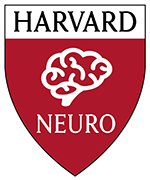Neuroscience concentrator Olivia McGinnis (‘20) is one of seven Harvard undergraduates chosen for the new class of Rhodes Scholars. Starting in fall of 2020, she will spend two years immersed in neuroscience at the University of Oxford.
“I am just so excited and shocked to be named a Rhodes Scholar,” she says. “It really is a great honor, especially when you consider how amazing all of the other finalists in my district are—every person there is highly accomplished and will go on to do good in this world.”
The Rhodes Scholarship is one of the oldest and most prestigious academic fellowship programs in the world. Each year, it enables 32 American students and recent graduates to pursue their unique scholarly interests at the University of Oxford. The Rhodes Scholarship website states that the scholars are “chosen not only for their outstanding academic achievements, but for their character, commitment to others and to the common good, and their potential for leadership.”
McGinnis’ commitment to the common good manifests in her interest in addressing mental health through neuroscience. “I have lived with family members struggling with mental health throughout my entire life,” she says. “Finding neuroscience has seriously helped me to come to terms with viewing mental illness as a disease distinct from the person.”
During her time at Harvard, McGinnis conducted research in the lab of MCB faculty Florian Engert. “Her most remarkable attributes were her intellectual creativity and her independent and practical approach to research,” says Engert. “I’ll miss her very much.”
As a Rhodes scholar, McGinnis will conduct research at The Centre for Neural Circuits and Behaviour. “The Centre is dedicated to systems neuroscience – understanding behavior as an algorithm implemented by neural circuits,” she explains. “I think in the future conceiving of the human brain as a systems neuroscience problem will be very revealing for psychiatric disease as more and more research shows that these neuropsychiatric states are distributed network phenomena.”
McGinnis plans on pursuing a Ph.D. in neuroscience, and her Oxford coursework will strengthen her background in both psychiatric and computational neuroscience. “While I am no computer science wizard, I think it is almost a requirement of modern neuroscience to be able to think about the brain computationally,” she says. “I do plan on increasing my practical coding skills and taking some classes in probability theory at Oxford. I have only ever worked in a zebrafish model, so working in a new model organism or with human fMRI data in the Psychiatry department will let me explore new kinds of questions.”
Overall, McGinnis is deeply grateful to the community at Harvard and MCB. She cites her postdoc mentor Andrew Bolton of the Engert Lab as one example. “I have had the most amazing research experience at Harvard in the Engert Lab and feel so lucky to have had such interdisciplinary, deep, and nuanced discussions about the brain in classes with professors at the top of the field,” she says.
by Diana Crow



